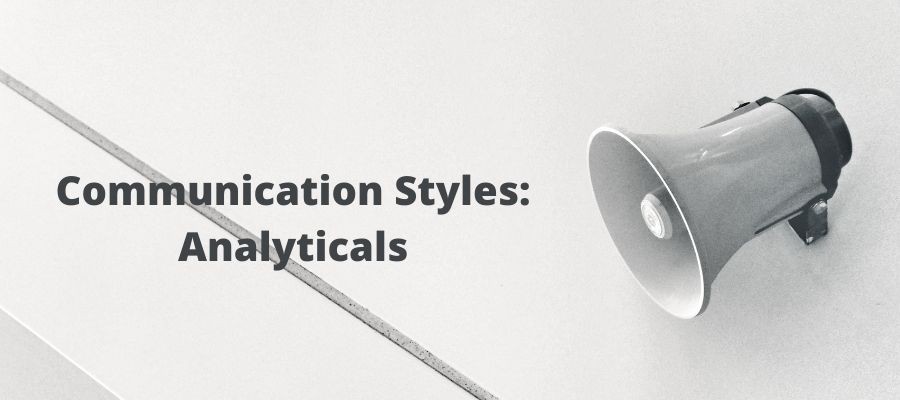Competent about Communication Styles? All about those Analyticals!
In the previous posts, we’ve discussed improving our people skills by adapting our way of communicating to coincide with others’ communication styles. In the first post about communication styles, we highlighted the characteristics, strengths, and weaknesses of 4 communication styles from the Boltons’ People Styles at Work and Beyond, 2nd Edition: Drivers, Expressives, Analyticals, and Amiables. If you haven’t yet identified your communication style profile, I urge you to go back and read the first post, “Competent about Communication Styles?” to determine your communication style and the style of those you work with. Today we’re discussing the Analytical communication style and how you can change what you say and do to more effectively get along with others. Stay tuned and read our future post about how Amiables can adapt their communication style to better communicate with others.
How ANALYTICALS can adapt to DRIVERS
1. Pick up the pace: move quickly, be prepared to decide quickly, use brief written communication, address problems quickly
2. Demonstrate higher energy: use gestures to show your involvement, move and speak more quickly, increase frequency and intensity of eye contact
3. Limit details or theory: concentrate on high-priority issues, present the main points
4. Say what you think: speak up more often, tell more and ask less, voice your disagreements, don’t gloss over problems
5. Speak in practical, results-oriented terms: focus on the results, emphasize the applicability of the plan
6. Facilitate Driver’s direction: allow Drivers considerable freedom in setting objectives, offer succinct information about results, be flexible to Driver’s direction
How ANALYTICALS can adapt to AMIABLES
1. Make personal contact: don’t seem aloof, be more casual/informal, disclose something about yourself
2. Focus more on feelings: note how other person reacts/body language, demonstrate more feelings yourself
3. Be Supportive: listen intently, express sincere appreciation, be willing to help
4. Provide Structure: make sure Amiables’ job is well defined, reduce uncertainty, help amiable to plan projects
5. Demonstrate interest in the human side: discuss effects of decisions on people/morale, request Amiables’ input on matters affecting them
6. Reduce number of facts/logical arguments: emphasize that other people support your approach, include factors that reduce a plan’s risk
How ANALYTICALS can adapt to EXPRESSIVES
1. Make personal contact: touch base personally, be more casual, look for opportunities for conversations
2. Pick up the pace: be ready to decide quickly, move more quickly than usual, implement decisions immediately
3. Demonstrate increased energy: lean into conversation, increase vocal intensity, use bigger gestures
4. Focus more on feelings: show more feelings yourself, be aware of what expressive is feeling, demonstrate more enthusiasm
5. Go with the flow of conversational spontaneity: allow enough time for conversations, spend time exploring options
6. Be open to fun-loving Expressives: don’t get impatient, be relaxed about jokes
7. Provide recognition: show appreciation for Expressive’s efforts
8. Say what you think: tell more, voice disagreements, speak up more often
9. Communicate using Expressive’s style: face-to-face, focus on the big picture, demonstrate concern about the human side, highlight Expressive’s vision
10. Provide Freedom: support Expressives in their unique endeavors, cater to physical restlessness
References: Bolton, B. & Grover Bolton, D. (2009). People Styles at Work and Beyond, Second Edition. New York, NY: Ridge Associates, Inc.
You’re a communication expert. Why is it often so challenging to communicate productively with colleagues and parents? Because you’re human, and effective communication, like any other acquired skill, must be explicitly learned. Check out this course:








